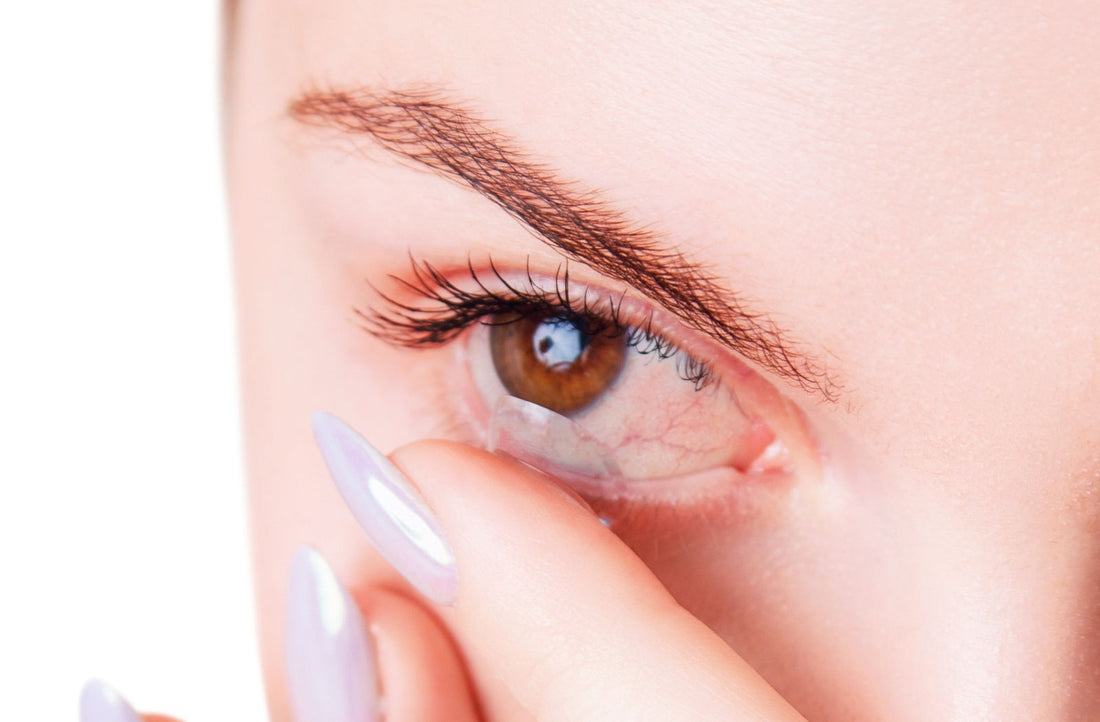Dry Eye Strategies for Contact Lens Wearers
Contact lenses are a common cause of dry eye, especially for those who wear them for extended periods. The lenses can limit oxygen flow to the eyes and cause tear film instability. If you're a contact lens wearer struggling with dryness, here are some practical strategies to help:

Dry Eye Strategies for Contact Lens Wearers
Wearing contact lenses offers convenience and clear vision, but for many people, it also comes with a common drawback — dryness and discomfort. Dry eyes can make contact lenses feel gritty, cause redness, and even shorten your wear time. Fortunately, with the right care habits and lens choices, you can dramatically improve comfort and protect your eye health. Here are five essential strategies for managing dry eyes while wearing contact lenses.
Quick Navigation
1. Choose the Right Contact Lenses
Not all contact lenses are created equal — the material, design, and replacement schedule all play a role in how well your eyes stay hydrated. If you regularly experience dryness, switching to a lens designed specifically for moisture retention can make a world of difference.
- Daily disposables: These reduce the buildup of protein deposits and allergens that can cause irritation.
- Hydrating lenses: Options like silicone hydrogel or moisture-lock technology lenses allow more oxygen flow and retain natural tear film.
- Larger or looser lenses: These can minimize friction between the lens and cornea, reducing micro-irritations.
Talk to your optometrist about which lens type best suits your lifestyle, tear quality, and eye shape. A simple lens change can improve comfort dramatically for many dry eye sufferers.
2. Practice Healthy Blink Habits and Eye Care
Many contact lens wearers blink less often while working at screens — sometimes up to 60% less than normal. This reduction in blinking leads to faster tear evaporation and dry patches on the lens surface. By adopting better blinking habits, you can help restore moisture and reduce discomfort throughout the day.
- Blink fully and often: Aim to fully close your eyes each time, ensuring your tear film spreads evenly across the lens.
- Follow the 20-20-20 rule: Every 20 minutes, look at something 20 feet away for 20 seconds to give your eyes a rest.
- Perform gentle eyelid massages: Massaging along the lash line stimulates oil glands and enhances tear stability.
- Use warm compresses: Helps loosen oils in the meibomian glands, promoting better lubrication and reducing fatigue.
Consistent care and awareness during screen use will help maintain tear stability and minimize contact lens irritation.
3. Use Lubricating Eye Drops or Ointments
Artificial tears can be a game-changer for anyone with dry eyes — especially contact lens wearers. The right drops can restore tear balance, reduce friction, and help you comfortably wear your lenses longer.
- Choose preservative-free drops to avoid sensitivity caused by chemicals in standard formulas.
- Use contact lens–safe lubricants while wearing your lenses to rehydrate them throughout the day.
- Apply overnight gels or ointments before bed to replenish your eyes after a long day of lens wear.
- Avoid drops not designed for contacts — they can leave residue or blur your vision.
Keeping your eyes consistently hydrated prevents redness and ensures your lenses stay comfortable from morning to night.
4. Maintain Proper Lens Hygiene
Lens hygiene plays a critical role in managing dryness and preventing infections. Dirty or old lenses can trap debris, disrupt the tear film, and cause micro-irritation — all of which worsen dryness.
- Clean lenses exactly as your optometrist recommends using the appropriate solution.
- Replace lenses on schedule — overwearing them leads to decreased oxygen flow and increased dryness.
- Clean and replace your lens case every few weeks to prevent bacterial growth.
- Never sleep in contact lenses unless prescribed for overnight wear.
Consistent hygiene keeps your lenses comfortable and your tear film stable, ensuring long-term eye health.
5. Consult Your Eye Doctor for Advanced Solutions
If you’ve tried all these strategies and still struggle with dryness, your optometrist may recommend more specialized treatments or products to help protect your eyes.
- Scleral lenses: These advanced lenses create a tear-filled reservoir that shields the cornea and provides all-day moisture.
- Prescription drops or medications: These can stimulate tear production or reduce inflammation that causes dryness.
- Professional assessment: Your doctor may check for meibomian gland dysfunction or tear deficiency using diagnostic imaging.
Professional guidance ensures that you’re using the safest, most effective approach to maintain both eye health and comfort while wearing contact lenses.
Shop the Solution
Many contact lens wearers struggle with dryness at night, especially after long screen days. Using EyeOasis Sleeping Tape can help you retain natural moisture while you sleep — supporting tear film recovery and improving morning comfort. Combine it with proper daytime lens care for 24-hour hydration support.
Sources
- Craig JP, et al. TFOS DEWS II: Tear Film Homeostasis and Dry Eye Disease. Ocul Surf. 2017.
- Stapleton F, et al. Management and Therapy of Contact Lens–Related Dry Eye. Eye Contact Lens. 2013.
- Wolkoff P. Indoor Air Humidity and Eye Irritation. Indoor Air. 2018.
- American Optometric Association (AOA). Contact Lens Dry Eye Guidance and Prevention.
